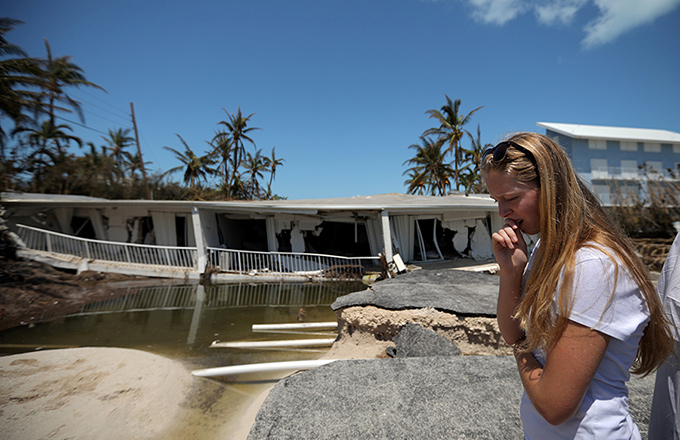EU seeks political solution to Korean Peninsula crisis
The European Union will continue its work to find a political solution to the Korean Peninsula crisis mainly triggered by the Democratic People's Republic of Korea (DPRK)'s nuclear test, said the bloc's foreign chief on Tuesday.
Federica Mogherini, vice-president of European Commission in charge of the bloc's foreign affairs, security and defence, addressed the European Parliament plenary, hours after the UN Security Council unanimously adopted a resolution to impose fresh sanctions on DPRK over its nuclear test on Sept 3, which violated the previous Security Council resolutions.
"Of course, sanctions are not a goal in themselves…our objective is not the pressure alone, but to open the political path for a solution of the crisis," said Mogherini. "And the European, economic and diplomatic pressures are always aimed at opening channels for credible, meaningful and fruitful dialogue."
To bring the DPRK back to the negotiation table, Mogherini said she has been working closely with key players such as China, Russia, the United States and Japan to achieve international unity in solving the crisis.
China has put trust on European Union to help solve the crisis as well. In recent days, President Xi Jinping has called German Chancellor Angela Merkel and French President Emmanuel Macron, exchanging views on the crisis, before the UN Security Council made the decisions of more severe sanctions including control of crude oil import.
Mogherini said EU will continue the discussion it launched last week on additional European sanctions, to complement the action decided by the Security Council and put maximum pressure on the DPRK.
But she also said that the union will continue to work to open a credible political path toward the denuclearization of the Korean Peninsula. "It will be one of the core issues of my agenda in New York next week, at the UN General Assembly ministerial week," said Mogherini.
Men Jing, professor of College of Europe in Belgium, said European Union has some advantages in helping mediate the crisis because crisis intervention is high on its global agenda, it has experience in dealing with crisis and some countries have transitional relationship with the DPRK.
"I think the countries in the East Europe, such as Poland can play a role in helping offer solutions to the nuclear crisis," said Men. "But we must realize that the Korean Peninsula crisis is highly complex."
In her address, Mogherini also said that European Union has seven member states that have embassies in the DPRK and some member states run humanitarian programmes in the country.
"When I say diplomatic channels, I mean a system of mediation of diplomatic talks that can guarantee a credible engagement. Because talks for talks are not necessarily a good idea," said Mogherini. "What we need is to create the conditions in the international community with all our partners, including with the European Union, to create the conditions for credible and meaningful diplomatic negotiations."
Mogherini's speech was highlighted at the European Parliament's plenary held in France's Strasbourg from Monday to Thursday. On Wednesday, European Commission President Jean-Claude Juncker will give his annual state of union address to present his ideas on the future of Europe.



























